Welcome to Hannam Fertility, we’re here to help.
Starting Your Fertility Journey
Our goal is to help every patient find their healthy path to pregnancy. Where you should start depends on where you are in your personal journey.
Just getting started? It’s a great time for a Fertility Check. Meet with one of our physicians to discuss fertility testing that can help you understand your options for building the family you want.
Looking for more time to decide? Consider Fertility Preservation. Advanced fertility preservation techniques such as egg freezing can help you build the family you want on your own time. Book a consult with our Egg Freezing Specialist and Nurse Practitioner, Eileen McMahon who can help you understand the egg freezing process and how you can make the right decision for your future.
Want to get started right away? Come talk about Family Building. If you’ve already been trying and are looking for medical assistance with conception or a second opinion, you might be a good candidate for our Natural Conception Program or In-Vitro Fertilization. Book a consult with one of our fertility specialists to learn more about your options and what treatments are right for you.
Our mission is to remove barriers to fertility care and enable seamless access to our services. We offer Canada’s best natural conception program and the highest success rates in egg freezing, IVF and donor eggs in Canada. Hannam Fertility Centre is the only Canadian clinic that has partnered with the internationally renowned IVF specialists at CCRM Fertility (the Colorado Centre for Reproductive Medicine) allowing us to provide our patients with the best IVF treatment, access to cutting edge technology and quality control that is unmatched and enables the best chance of success.
From fertility tests and natural conception support to egg freezing and IVF,
we offer a wide range of options to support your whole care.
How We Can Help
Natural Conception
We can help you get pregnant at home.
Egg Freezing
Plan for your future.
IVF with CCRM
Highest success rates in Canada.
Why Choose Hannam Fertility?
-

Leading Physicians
Our doctors are not only some of the best in the field—they’re also some of the nicest.
-

Natural Conception
We’re the country’s experts in helping you conceive as naturally as possible.
-

Cutting-Edge Science
We’re the only clinic in Canada that provides world-leading IVF treatments from CCRM.
-

LGBTQ+ Friendly
Whether it’s with him, her, they or on your own, all we care about is helping you achieve parenthood.
-

Facilities Centered Around You
From the ground up, our clinics are built with your needs in mind. Comfortable, welcoming, full services under one roof.
-

One-Day Work Up
Understand your fertility health with initial testing in one day, in one place.
Our Commitment
No matter where you are in your fertility journey, we are here to support and guide you on the path to a healthy pregnancy in the shortest time possible. At Hannam Fertility Centre, we take pride in our proven track record of delivering superior outcomes, and we continuously invest in proprietary technology, research, and scientific advancements to ensure the highest level of success for you. With our state-of-the-art CCRM lab and a team of highly experienced physicians, skilled nurses, and compassionate care teams, we strive to offer the best-in-class fertility care and wellness services that you deserve.
Our unwavering commitment to you is to provide exceptional patient care that prioritizes your comfort and convenience. We understand that navigating the fertility journey can be both emotionally and physically demanding, and that's why we have created modern facilities and digital experiences tailored to empower you and instill in you the highest level of confidence throughout your journey. With our dedication to excellence, cutting-edge technology, and compassionate approach, together, we will work towards realizing your dreams of building a family with utmost confidence and empowerment.









